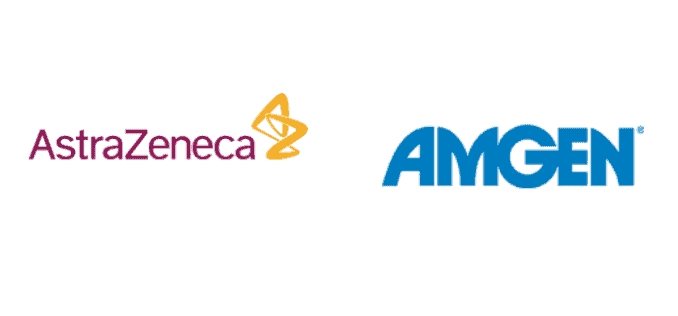
AstraZeneca (AZ) and Amgen’s investigational medicine tezepelumab has hit statistically significant markers of superiority across all primary and key secondary endpoint in a phase 3 trial.
Tezepelumab is a potentially first-in-class thymic stromal lymphopoietin (TSLP) targeting antibody – TLSP is thought to play a pivotal role in causing asthma inflammation and is a novel target for an asthma drug.
Full data from the NAVIGATOR trial – presented at the virtual American Academy of Allergy, Asthma & Immunology (AAAAI) meeting – showed that tezepelumab achieved a 56% reduction in the annual asthma exacerbation (AAER) rate over 52 weeks in the overall patient population when added to standard of care (SoC), compared to placebo plus SoC.
In this trial, SoC was defined as medium- or high-dose inhaled corticosteroids (ICS) plus at least one additional controller medication, with or without oral corticosteroids (OCS).
In addition, a pre-planned subgroup analysis showed that tezepelumab achieved a 41% reduction in AAER in patients with baseline eosinophil counts of less than 300 cells per microlitre.
Clinically meaningful reductions in AAER were also observed in two additional subgroups – 39% in patients with baseline eosinophil counts of less than 150 cells per microlitre and 70% in patients with greater than or equal to 300 cells per microlitre.
In addition, clinically meaningful reductions in AAER were observed in tezepelumab-treated patients regardless of allergy status and fractional exhaled nitric oxide (FeNO) level – biomarkers used by clinicians to inform treatment options.
For every key secondary endpoint, tezepelumab also demonstrated statistically significant improvements on each count, including lung function measurements, asthma control and health-related quality of life.
In a statement, AZ said that tezepelumab is the first and only biologic medicine to consistently and significantly reduce AAER in a broad population of severe asthma patients, irrespective of baseline eosinophil count across phase 2 and phase 3 trials.
“The unprecedented results from the NAVIGATOR phase 3 trial show tezepelumab is the first and only asthma biologic to demonstrate in randomised trials clinically meaningful exacerbation reductions, irrespective of blood eosinophil counts, allergy status and fractional exhaled nitric oxide,” said Mene Pangalos, executive vice president, BioPharmaceuticals R&D, AZ.
“There is now a strong body of evidence showing the benefit of targeting the top of the inflammatory cascade with tezepelumab, and we look forward to bringing this potential first-in-class medicine to a broad population of severe asthma patients as soon as possible,” he added.
The NAVIGATOR trial will form the basis of regulatory submission, AZ added in its statement.
In September 2018, tezepelumab scored a breakthrough therapy designation (BTD) from the US Food and Drug Administration (FDA) in patients with severe asthma without an eosinophilic phenotype.




